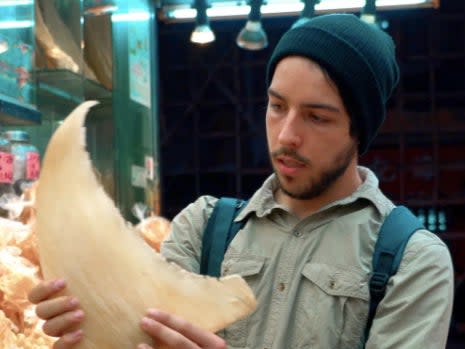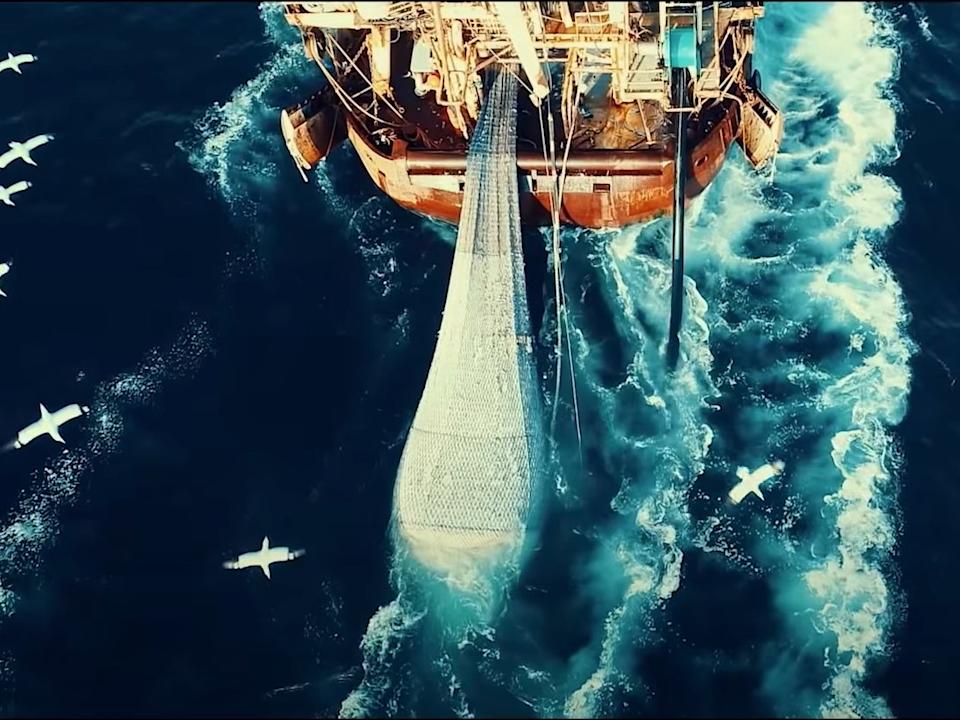Seaspiracy review: A shocking indictment of the commercial fishing industry

I’ve certainly no desire to eat the lightly dusted lemon sole sitting in my fridge after watching Netflix’s shocking new documentary Seaspiracy.
Directed and narrated by 27-year-old British filmmaker Ali Tabrizi, and produced by the same team who did 2014’s factory farming expose Cowspiracy, the film shows the devastating impact commercial fishing is having on the marine life – such as sharks, dolphins and whales – that is key to the survival of the oceans. It also exposes the corrupt world of the multibillion-dollar seafood industry I never knew existed.
Tabrizi’s investigation feels fraught with danger as he’s refused interviews and is clearly unwelcome wherever he goes. What we discover over the 90 minutes is a shocking indictment of the whole commercial fishing industry. Its practices are even more damaging than plastic and oil pollution, and could result in empty oceans by 2048, from overfishing and marine ecosystem destruction.
Most shockingly, on a visit to Taiji in southern Japan, Tabrizi discovers that dolphins are slaughtered for eating too many fish. They are, of course, simply scapegoats for the overfishing that’s happening – a phenomenon that’s more dangerous for the environment than deforestation.

It means that companies like Mitsubishi – which controls 40 per cent of the world market in Bluefin tuna – can continue participating in the lucrative tuna industry and wash its hands of ecological responsibility.
It’s hard to stomach, as are some of Tabrizi’s other findings: the Thai fishing industry is reportedly using slave labour to catch shrimps and prawns; discarded plastic fishing equipment makes up 46 per cent of the “Great Pacific Garbage Patch” in the north Pacific Ocean; labels on fish like “Dolphin safe” are meaningless since people turn a blind eye or can be bribed out at sea; some 300,000 whales and dolphins are killed every year as “bycatch” (caught unintentionally during fishing expeditions).
The prospect is hardly better for farmed fish. Not only are they fed wild-caught fish, but when Tabrizi goes undercover to a Scottish salmon farm, the stench is horrific. The salmon have lice infestations, infectious diseases – even chlamydia.
Read more:
Seaspiracy viewers react to controversial Netflix documentary about global fishing industry
Major Unforgotten character killed off in devastating season finale
Line of Duty viewers overjoyed as Ted Hastings delivers show’s iconic phrase in episode 2
About halfway through, the documentary loses its shock factor – simply because after about an hour, the bleak statistics cease to surprise me. It’s already clear we are destroying sea life at rapid speed. Five million fish are killed per minute. That’s 2.7 million a year.
But if there’s one thing Seaspiracy doesn’t want it’s for us to switch off and give up. There is hope. The eco-system can bounce back if given half the chance.
I had sushi last night. I regret it now. If the only real solution is reducing our fish consumption, I’m signing up as a vegan.


